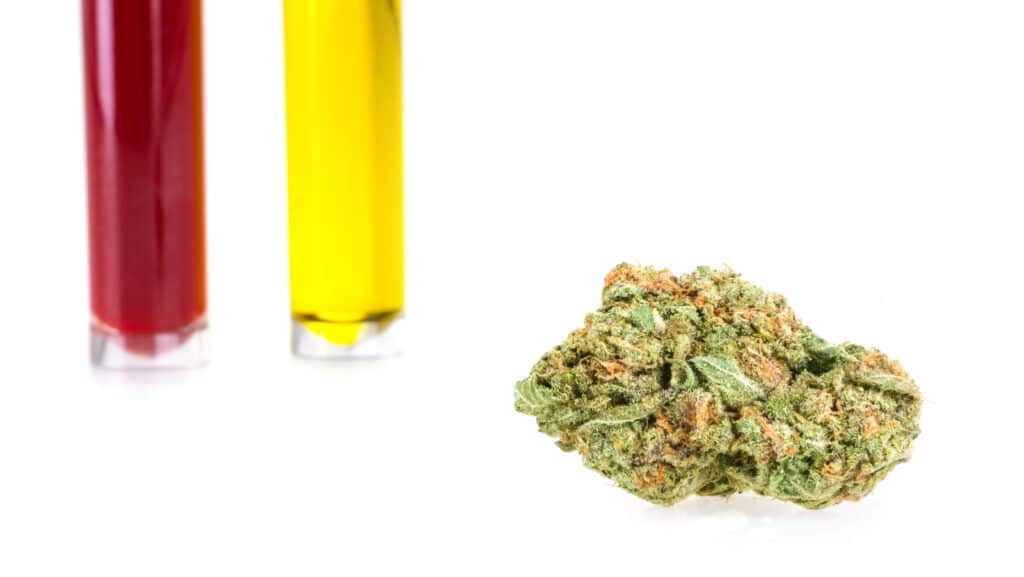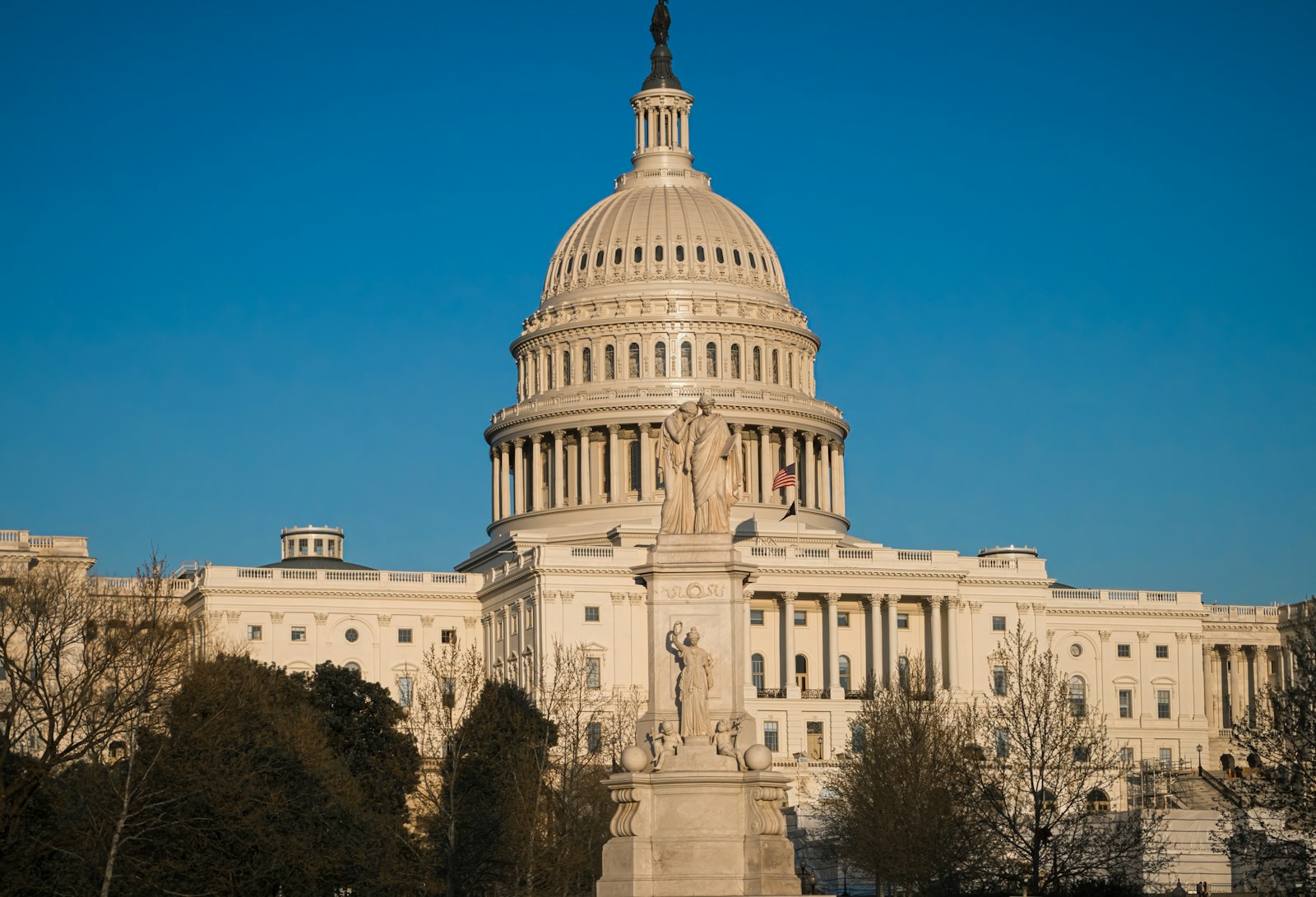Cannabis
Report: Truckers Support Marijuana Testing Reform
Published
11 months agoon
By
admin
The trucking industry is an industry with both a labor shortage problem, and an issue with marijuana tests. A new report backs up that truckers are very much for marijuana reform, especially in trucker testing policies. What did the report say? And how prevalent is it to test positive for cannabis in the trucking industry?
Report on truckers and marijuana
The American Transportation Research Institute (ATRI) released a report called Impacts of Marijuana Legalization on the Trucking Industry, on June 5th. The report evaluates how a marijuana legalization can impact truckers as a whole. It covers different topics related to both marijuana and the trucking industry: latest demographics of legalization; an evaluation of data regarding marijuana use, and highway safety; what implications a legalization could have on hiring practices for truckers; and an evaluation of CDL data for driver drug tests.
The report was a high priority for the organization’s Research Advisory Committee (RAC) in 2022. It includes a number of driver surveys to gain insight into how these workers feel about marijuana reform, and the current laws attached to drug tests. Overall, drivers showed they were unhappy with current drug test laws, particularly because there is no actual impairment test.
The report subsequently goes into how the federal government could potentially update policy as a part of overall marijuana reform. The report speaks of two different options in front of the federal government, that have two very different outcomes for the future of the trucking industry.
The first is to do nothing, and maintain the same policy of prohibition. This pathway results in what’s already happening today. Drivers constantly being removed (despite the shortage) due only to a positive test; which potentially highlights use from well before the time of testing. The other option is for legalization, for which the agency reminds that the following would be necessary to help employers: national standards for marijuana testing and impairment; and laws that protect carriers, and allow for continued screening of some kind.

The report reminds us that “The central goal of industry drug testing efforts is highway safety. The current approach supports safety efforts, but also results in inefficiencies when drivers that do not present a safety issue are removed from the industry.” It continues, “To ensure that the trucking industry remains safe and unimpaired, there are several actions that must be taken before any federal efforts to legalize marijuana commence.”
Currently there are approximately 3.49 million truck drivers in the US alone, according to data via CDLjobs.com. The referenced Economics and Industry Data report gathered information from 2021. Though this sounds like a huge number, its actually representative of an industry shortage. According to CDLjobs, the industry needs approximately 50,000-60,000 more drivers. Issues behind this situation include a lot of baby-boom-born drivers retiring, and a high turnover rate among workers. Due to the latter, much has already been done to improve conditions, to make driving a more appealing job.
Some specifics of the report on trucking and marijuana
In the report, the RAC points out, that “More than half of all positive trucking industry drug tests are for marijuana metabolite,” and that federal prohibition “has been highlighted as a potential disincentive for drivers to stay in the industry, and it has even been argued that loosening the restrictions on marijuana use would make the industry more attractive and widen the potential labor pool.”
The term ‘marijuana metabolites’ refers to the compounds that are produced when main compounds break down. Some can stay in body tissue for quite a while after use; like days, weeks, or months. This implies that some of these drivers might show positive drug results, when they haven’t used the drug recently. The amount of time for full clearance, depends on the individual person.
At the moment, federal law states that commercial drivers cannot use cannabis at all – zero-tolerance. A host of tests are applied; both before employment, and randomized tests for hired staff. Under current federal law, any use is restricted, whether its use while working, or while off the clock. The drivers are not tested for impairment, however. Which means they can be penalized for a positive test, even with excellent performance.
In terms of what drivers think of all this, the report’s included survey data pointed to 72.4% of (licensed) drivers who want marijuana reform in general, and in this particular industry. 66.5% were for a full federal legalization. 65.4%, regardless of anything else, wanted a fair testing system that looks for active impairment, instead of punishing drivers for what they might be doing off-hours, or which isn’t affecting their performance abilities. They said the urine-based screening currently used, should be replaced for a testing regiment that focuses mainly on impairment.
ATRI explained this issue further, saying “current marijuana testing is likely effective at removing drivers who may work while impaired, it also likely removes drivers who previously used the drug but would not operate a truck while impaired.”
According to the report, how many drivers said its common to leave the trucking industry over marijuana rules? 50.2%. And in terms of how these drivers, who are constantly on the road, look at highway safety in terms of marijuana legalization? 55.4% didn’t think such laws had increased danger on roads to any noticeable degree.

As far as research on the topic, the report points to a lack of concrete information on marijuana’s influence on highway safety. Even a report from Congressional Research Services in 2019 via MarijuanaMoment, couldn’t point to definitive information of marijuana increasing danger on roadways. While this doesn’t indicate it can’t, lets remember that we don’t have to debate whether alcohol causes damage on roads. When something so frequently causes damage, it’s pretty clear.
How many truckers are affected by marijuana laws?
According to Transport Topics, nearly 41,000 drivers got a positive marijuana test result in 2022. This number is a 32% increase from the previous year; and this information was compiled through the Federal Motor Carrier Safety Administration’s Drug & Alcohol Clearinghouse. It notes there have been over 100,000 positive marijuana tests since the Clearinghouse began in 2020.
When a driver tests positive, they are barred from driving. They don’t necessarily get fired, but are made to go through a ‘return-to-work’ process, complete with a clean test; before they can start driving again. Consider that this means not getting paid for some amount of time, which impairs the driver’s ability to make an income. This likely relates to why drivers are so willing to leave the job because of marijuana laws.
The Clearinghouse tests for 14 different substances, for which marijuana is responsible for the majority of positive results. Following marijuana are cocaine, methamphetamines, and amphetamines. Together, these four drugs total 90% of positive tests, for which there have been 177,376 in the last three years.
According to Clearinghouse, as of May 1st of this year, 12,527 drivers received a positive marijuana test. The day after (on June 2nd), a final rule was established by the Federal Aviation Administration, the Federal Railroad Administration, the Federal Motor Carrier Safety Administration, and the Federal Transit Administration; working in conjunction. It amends the Department of Transportation’s standard drug testing policy, to now include an oral fluid testing option. This went into effect June 3rd.
Saliva tests have benefits when it comes to marijuana testing. THC is only detectable in saliva for up to around 24 hours; which means this could help stop positive tests for drivers who may have smoked days or weeks prior to testing. It’s a step up, even if it still doesn’t account for the issue of impairment.
How dangerous is it to drive on weed?
The question of whether marijuana impairs driving, is not as conclusive as with other drugs like alcohol. As stated, even a federal congressional investigation couldn’t turn up conclusive results. In fact, some recent research shows not an uptick in impaired driving, but less driving incidences in locations with legalization policies.
I can say for my part that I cannot drive safely on marijuana, so I choose not to do it. For most other people I know, marijuana just makes the drive better, and I haven’t heard of incidences related to impairment. Its possible that unlike with alcohol, those who have an issue with it, probably won’t mix the two. After all, cannabis doesn’t cause the same impairment in thought as drinking does.

Plus, no one questions whether alcohol causes damage on roadways. Too much evidence exists to go against it; and it becomes obvious through personal stories, or stories of friends or community members. If you talk to enough people – and it doesn’t have to be that many – you’ll find someone impacted by drunk driving.
What are some statistics? In the US, there are approximately 29 deaths a day on the roadways due to drunk driving, which indicates a death approximately every 50 minutes. In 2016, the total drunk driving death total came to 10,497, and this accounted for 28% of all deaths on the road. That year, 1,233 children died on the road, and 17% were due to drunk drivers.
Regardless that cannabis shows no agreed-upon increase in issues, and a possible decline in them; many states are adopting drugged driving policies in which drivers who test positive for cannabis, receive a DUI. People who are stopped on roadways usually face blood-tests, which measure the THC in nanograms. Different states have different amounts set for what gets a person in trouble. Much like with truck drivers, a positive test doesn’t mean the driver actually showed impairment.
Conclusion
We rely on the trucking industry to get goods from here to there, and we generally complain when it doesn’t happen in the time frame we desire. It suffices to say that a shortage in truck drivers isn’t wanted by anyone. Hopefully, the new saliva tests will replace the urine tests more often; and that a federal legalization might help ease the restrictions related to truckers and marijuana in general.
Hello readers, cool that you’re here! Welcome to Cannadelics.com; a site where we work to bring you the best in independent reporting for cannabis, hallucinogens and other drugs. We’re happy to keep you updated; so head over regularly. And subscribe to our Cannadelics Weekly Newsletter, to ensure you never miss an important story or awesome product promotion.
Related
You may like
Cannabis
Senate Leadership Pushes End of Federal Prohibition Of Cannabis
Published
1 day agoon
May 3, 2024By
admin
In a big week for the marijuana industry and a surprise to most of the industry, Senators Schumer (D-NY), (Murray D-WA), Wyden (D-OR), Cory Booker (D-NJ) and 14 others have deduced to follow the public and make a change. As of today, Senate leadership pushes end of federal prohibition of cannabis.
Senator Patty Murray, a senior member and former Chair of the Senate Committee on Health, Education, Labor, and Pensions (HELP) has long been a champion of veterans. This falls in line with PTSD treatments and with the American Medical Association’s backing of rescheduling and more medical research to see how the cannabis plant can help more patients.
RELATED: California or New York, Which Has The Biggest Marijuana Mess
They have reintroduced the Cannabis Administration and Opportunity Act (CAOA), legislation that would end the harmful federal prohibition of cannabis by removing cannabis from the list of federally controlled substances and empowering states to create their own laws. This legislation would be a historic step toward rectifying the failed policies of the War on Drugs and would help federal law better reflect the will of the vast majority of Americans, 91% of whom believe that cannabis should be legalized for either adult or medical use.
“It is far past time that the federal government catch up to Washington state when it comes to cannabis laws. This legislation is about bringing cannabis regulations into the 21st century with common-sense reforms to promote public safety and public health, and undo deeply unjust laws that have for decades disproportionally harmed people of color,” said Senator Murray. “The Cannabis Administration and Opportunity Act will help set us on a safe and responsible pathway to legalization—I’ll keep working to secure the necessary support to get it done.”

The Cannabis Administration and Opportunity Act establishes a federal regulatory framework to protect public health and safety, prioritizes restorative and economic justice to help undo harm caused by the War on Drugs, ends discrimination in the provision of federal benefits on the basis of cannabis use, provides major investments for cannabis research, and strengthens worker protections. By decriminalizing cannabis at the federal level, the CAOA also ensures that state-legal cannabis businesses or those in adjacent industries will no longer be denied access to bank accounts or financial services simply because of their ties to cannabis.
The Cannabis Administration and Opportunity Act:
- Protects public health by:
- Establishing a Center for Cannabis Products to regulate production, labeling, distribution, sales and other manufacturing and retail elements of the cannabis industry.
- Instructing the FDA to establish standards for labeling of cannabis products, including potency, doses, servings, place of manufacture, and directions for use.
- Establishing programs and funding to prevent youth cannabis use.
- Increasing funding for comprehensive opioid, stimulant, and substance use disorder treatment.
- Protects public safety by:
- Removing cannabis from the Controlled Substances Act and eliminating federal prohibitions in states that have chosen to legalize medical cannabis, or adult-use cannabis.
- Retaining federal prohibitions on trafficking of cannabis in violation of state law; establishing a grant program to help departments combat black market cannabis.
- Requiring the Department of Transportation (DOT) to create standards for cannabis-impaired driving.
- Directing the National Highway Traffic Safety Administration (NHTSA) to collect data on cannabis-impaired driving, create educational materials on “best practices,” and carry out media campaigns.
- Incentivizing states to adopt cannabis open container prohibitions.
- Regulates and taxes cannabis by:
- Transferring federal jurisdiction over cannabis to the Alcohol and Tobacco Tax and Trade Bureau (TTB).
- Eliminating the tax code’s restriction on cannabis businesses claiming deductions for business expenses, and implementing an excise tax on cannabis products.
- Establishing market competition rules meant to protect independent producers, wholesalers, and retailers and prevent anti-competitive behavior.
- Encourages cannabis research by:
- Requiring the Government Accountability Office (GAO) to study and report on metrics that may be impacted by cannabis legalization.
- Requiring the Department of Health and Human Services (HHS) and National Institutes of Health (NIH) to conduct or support research on the impacts of cannabis.
- Requiring the VA to carry out a series of clinical trials studying the effects of medical cannabis on the health outcomes of veterans diagnosed with chronic pain and post-traumatic stress disorder.
- Requiring the Bureau of Labor Statistics to regularly compile and publicize data on the demographics of business owners and employees in the cannabis industry.
- Establishing grants to build up cannabis research capacity at institutions of higher education, with a particular focus on minority-serving institutions and Historically Black Colleges and Universities.
- Prioritizes restorative and economic justice by:
- Using federal tax revenue to fund an Opportunity Trust Fund to reinvest in communities and individuals most harmed by the failed War on Drugs.
- Establishing a Cannabis Justice Office at the Department of Justice’s Office of Justice Programs
- Establishing a grant program to provide funding to help minimize barriers to cannabis licensing and employment for individuals adversely impacted by the War on Drugs.
- Establishing expedited FDA review of drugs containing cannabis manufactured by small businesses owned by socially and economically disadvantaged individuals.
- Directing the Secretary of Housing and Urban Development to establish a grant program to provide communities whose residents have been disproportionately affected by the War on Drugs with additional funding to address the housing, economic, and community development needs of such residents.
- Initiating automatic expungement of federal non-violent cannabis offenses and allows an individual currently serving time in federal prison for nonviolent cannabis offense to petition a court for resentencing.
- Disallowing the denial of any benefits or protections under immigration law to any noncitizen based on their use or possession of cannabis.
- Prevents discrimination in the provision of federal benefits against people who use cannabis.
- Strengthens workers’ rights by:
- Removing unnecessary federal employee pre-employment and random drug testing for cannabis
- Ensuring worker protections for those employed in the cannabis industry.
- Establishing grants for community-based education, outreach, and enforcement of workers’ rights in the cannabis industry.
RELATED: Cannabis Industry Employs The Same As These Companies
The Cannabis Administration and Opportunity Act is co-sponsored by U.S. Senators Jeff Merkley (D-OR), Kirsten Gillibrand (D-NY), Elizabeth Warren (D-MA), Ed Markey (D-MA), Michael Bennet (D-CO), Gary Peters (D-MI), Tina Smith (D-MN), John Hickenlooper (D-CO), Ben Ray Luján (D-NM), Alex Padilla (D-CA), Peter Welch (D-VT), Rev. Raphael Warnock (D-GA), John Fetterman (D-PA), and Laphonza Butler (D-CA).
Senator Murray has been a leader on common-sense cannabis reforms. She helped introduce the Cannabis Administration and Opportunity Act last Congress, and in 2017, she first introduced the Secure and Fair Enforcement (SAFE) Banking Act which would allow state-legal cannabis businesses to access banking services. She has reintroduced the bill multiple times and is pushing hard for its passage. An updated version of the legislation—the Safe and Fair Enforcement Regulation (SAFER) Banking Act of 2023, which Murray also cosponsored—passed through committee after a bipartisan markup last fall.

House racing is highly popular sports with over 45,000 races run in the US and Canada last year. The Kentucky Derby is the pinnacle of horse racing in North America, but most major metro hubs have some type of opportunity. Globally it is a $400 billion industry with tens of millions of people watching. But are they off to the horse races with cannabis?
RELATED: How To Be Discreet When Using Weed
The biggest horse racing party is the Kentucky Derby and the Infield (the area inside the track) is a huge one with beer trucks, Mardi Gras bead shenanigans, and maybe a little whiff of weed. While Churchill Downs, where the race is run, bans all smoking, vapes, gummies and more make the way in. The same is true across the realm. But what about those in the race?

Horse racing is an intense activity for the animal, and increasingly, horse owners are adapting human products (either medical marijuana or hemp) for their athletes. Recovery, hydration, inflammation and pain management are all benefits for the horse if done with the correct dosage. Additionally, it is seen as a potential for calming a horse.
Like the human mass market, CBD is leading the way. But the efficacy and safety of some products is questionable, due to very little research and supervision. Until the passage of the 2018 Farm Act, it was illegal to possess or conduct research on hemp as well as marijuana. Like the NFL, owners should be aware CBD and THC cannot be used in when competing, and if CBD shows up on a drug test that horse may be disqualified.
RELATED: The Most Popular Marijuana Flavors
With rescheduling, there should be more research done regarding CBD and THC’s benefits to animals, especially pets and horses. Before administering CBD to horses, horse owners should first consult with a veterinarian.
Additionally, jockeys are banned from using cannabis while racing. This falls inline with the current global sports guidelines. CBD has been used in helping with recovery, but it can not be used prior to the race, especially if you are looking at winning.

The Cannabis world is going through another big change with the potential of rescheduling – but what does it really mean?”
The Fresh Toast – The cannabis world is going through another major change, so what is the future of cannabis after rescheduling?
The Drug Enforcement Administration (DEA) is moving for cannabis to be rescheduled. The anticipated rescheduling follows the Department of Health & Human Services’ (HHS) August 2023 recommendation, based on scientific support for the rescheduling from the FDA, that cannabis be rescheduled under Schedule III of the Controlled Substances Act. Cannabis has remained a Schedule I substance since it was originally “temporarily” classified as such by the Controlled Substances Act of 1970. Schedule I drugs are defined as having no currently accepted medical use and a high potential for abuse, with other Schedule I drugs including heroin and LSD (despite cocaine, fentanyl, and other potentially dangerous drugs being in less restrictive drug schedules). The status of cannabis as a Schedule I drug has long been criticized, particularly as more and more U.S. states legalized cannabis for medical and recreational use.
RELATED: Beer Sales Flatten Thanks To Marijuana
From a consumer standpoint rescheduling will not actually legalize cannabis. At least not in a way forcing States in which cannabis is currently prohibited to immediately change course as a direct result of rescheduling. Instead, those States are likely to continue cannabis prohibition (though this momentous step may influence further states to legalize). Similarly, states with state-legal cannabis programs will likely not immediately change from a consumer perspective, although further regulation or even a reduction in product pricing due to cannabis no longer being subject to section 280E of the Internal Revenue Code (discussed in detail below) may soon follow.

There is more going on the business side with rescheduling. Falcon Rappaport & Berkman LLP has reviewed the process and outcomes.
Taxes
The most significant consequence of cannabis rescheduling will be the immediate removal of cannabis from the reach of I.R.C. Section 280E, which is arguably the greatest burden on state-legal cannabis operators. Section 280E prohibits cannabis businesses from writing off many business expenses when calculating their net profit, which has resulted in vastly higher taxes as compared to similar non-cannabis businesses. Instead, section 280E only permits a deduction for the Cost of Goods Sold (COGS) for any business trafficking in any controlled substances (i.e., drugs listed on Schedule I or Schedule II). Despite cannabis businesses operating under state-legal programs, they are considered “trafficking” and cannot take ordinary business deductions. Allowing cannabis businesses to deduct all ordinary and necessary business expenses, and not just COGS, will help to even the playing field with nearly every other legal business.
Federal Illegality
As discussed from a consumer standpoint, rescheduling cannabis does not affect the overall federal illegality of cannabis. This means that state-legal cannabis businesses will not automatically be federally legal, as their federal illegality will continue under Schedule III. While Schedule III drugs may be legally prescribed and sold under federal law, the various restrictions (such as requiring FDA approval of any such Schedule III drug and DEA registration of a distributor) mean that your average dispensary, even medical dispensaries, will still be federally non-compliant. For these same reasons, the reclassification to Schedule III does not mean that marijuana grown pursuant to state programs can be sold in interstate commerce. Marijuana products, even under Schedule III, are only federally legal if they are federally approved and there are only three FDA-approved cannabis-based drugs developed to date (Marinol, Epdiolex, and Syndros).
RELATED: Cannabis Industry Employs The Same As These Companies
Intellectual Property & Cannabis Trademarks
The United States Patent and Trademark Office (USPTO), the agency tasked with examining federal trademark applications, has generally required use of a mark to be lawful under federal law in order to receive federal trademark registration under the U.S. Trademark Act (see Examination Guide 1-19). The federal illegality of cannabis has thus prevented trademark registration in connection with most cannabis products. Unfortunately, cannabis rescheduling will not remedy this issue. Even in Schedule III, cannabis products would have to be federally lawful, with lawful use of a Schedule III drug requiring FDA approval.
Entitlement to Federal Bankruptcy Protection
Currently, plant-touching cannabis companies are not entitled to federal bankruptcy protection. That is because the U.S. Bankruptcy Code requires that bankruptcy plans are “proposed in good-faith and not by any means forbidden by law.” Since even state-regulated cannabis companies violate the federal Controlled Substances Act (CSA), they are disqualified. Unfortunately, rescheduling to Schedule III of the CSA alone will not likely solve that barrier to bankruptcy. While some have argued otherwise, the fact is that to manufacture, distribute, or dispense a Schedule III Controlled Substance, businesses must be registered with the Drug Enforcement Administration (“DEA”). Any business or person not registered with the DEA is not authorized to manufacture, distribute, or dispense it. Meaning that violations would likely constitute an unlawful act under the CSA. Consequently, an attempt by the non-complying business to commence a voluntary petition seeking federal bankruptcy protection will likely result in a motion to dismiss the case by the U.S. Trustee’s Office.
However, in light of a recent trend among bankruptcy court’s in allowing ‘one-step-removed’ distribution of cannabis-related assets, federal rescheduling may very well result in a more liberalized approach to administering bankruptcy cases so that bankruptcy judges will be more willing to look past the issue of marijuana’s federal illegality.
Status Quo
There are several aspects of the existing cannabis industry which would not be immediately changed by rescheduling cannabis to Schedule III. Ongoing banking issues including the lack of access to standard commercial bank loans and lines of credit would likely persist; difficulties in processing cannabis transactions due to the reality that major credit card companies like Visa, Mastercard and others will likely still not service marijuana businesses; general federal illegality; and the criminalization of cannabis (and continued incarceration of certain offenders) in prohibitive states would remain following rescheduling.
While many had hoped for the de-scheduling of cannabis, the change in stance of the DEA, a longstanding adversary of cannabis reform, is no small feat.
Terran Cooper is a regular contributor to The Fresh Toast. He is part of Falcon Rappaport & Berkman LLP. This article was developed in part with the help of Andrew Cooper and Matthew Foreman.

How Not to Roll a Joint : Common Blunders Beginners Make

Cannabis Makes Gym Workouts More Fun Says New Fitness Study

Marijuana backers eye proposed federal regulatory change as an aid to legalizing pot in more states

Senate Leadership Pushes End of Federal Prohibition Of Cannabis

Off To The Horse Races With Cannabis

The Future Of Cannabis After Rescheduling

A Happy Hippie’s Journey of Love, Cannabis, and Self-Discovery

But What about the UN Drug Treaties?

The Best Tips To Up Your Intimacy Game While High

What Can Consumers Expect From Marijuana Rescheduling

Distressed Cannabis Business Takeaways – Canna Law Blog™

United States: Alex Malyshev And Melinda Fellner Discuss The Intersection Of Tax And Cannabis In New Video Series – Part VI: Licensing (Video)

Drug Testing for Marijuana – The Joint Blog

What you Need to Know

Cannabis, alcohol firm SNDL loses CA$372.4 million in 2022

NCIA Write About Their Equity Scholarship Program

City Of Oakland Issues RFP For Employee Training Programs

It has been a wild news week – here’s how CBD and weed can help you relax

A new April 20 cannabis contest includes a $40,000 purse

UArizona launches online cannabis compliance online course
Trending
-

 Cannabis News1 year ago
Cannabis News1 year agoDistressed Cannabis Business Takeaways – Canna Law Blog™
-

 One-Hit Wonders1 year ago
One-Hit Wonders1 year agoUnited States: Alex Malyshev And Melinda Fellner Discuss The Intersection Of Tax And Cannabis In New Video Series – Part VI: Licensing (Video)
-

 drug testing5 months ago
drug testing5 months agoDrug Testing for Marijuana – The Joint Blog
-

 Cannabis 1011 year ago
Cannabis 1011 year agoWhat you Need to Know
-

 Marijuana Business Daily1 year ago
Marijuana Business Daily1 year agoCannabis, alcohol firm SNDL loses CA$372.4 million in 2022
-

 Education1 year ago
Education1 year agoNCIA Write About Their Equity Scholarship Program
-

 Education1 year ago
Education1 year agoCity Of Oakland Issues RFP For Employee Training Programs
-

 Cannabis1 year ago
Cannabis1 year agoIt has been a wild news week – here’s how CBD and weed can help you relax



